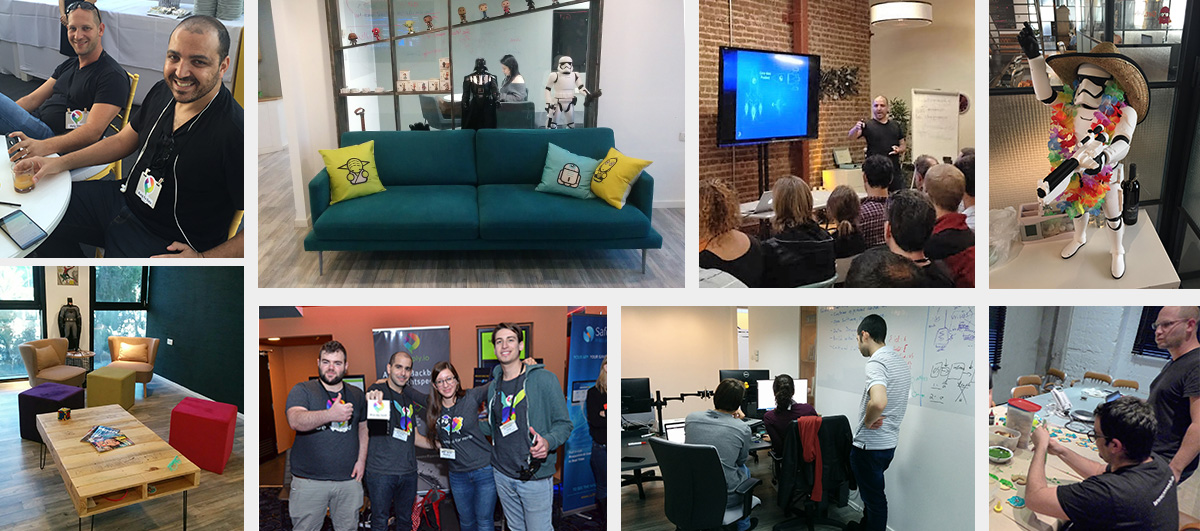

We implemented each module as a standalone workflow, and we created one unified workflow that imports all the module workflows into a full end-to-end pipeline. PANOPLY architecture overview, showing various data types used along with modules for data pre-processing and analysis. Almost all analysis modules output an interactive HTML report summarizing results, in addition to detailed tables and plots.įigure 1.
Panoply org series#
Analysis ready data is then channelled to a series of Data Analysis Modules, many of which perform integrated multi-omic analysis. Any normalization or filtering for proteomics data is accomplished using Data Preparation Modules. PANOPLY takes as input a set of pre-formatted datasets derived from DNA, RNA and protein profiling, along with phenotype and clinical annotations (see Figure 1). PANOPLY combines representative methods from these studies, which originated as disparate algorithms implemented by different research groups, into a unified pipeline within a computational framework built to be modular, scalable and reproducible. These flagship studies have advanced the field by developing cutting-edge computational methods.

Proteogenomic analysis has been extensively applied to cancer samples in many studies published under the auspices of the Clinical Proteomic Tumor Analysis Consortium (CPTAC) and the International Cancer Proteogenome Consortium (ICPC), a global effort to accelerate the understanding of the molecular basis of cancer through the application of proteogenomics. We wanted researchers to be able to use it on any standard computational platform, so we designed PANOPLY to be modular and portable, but we chose to also make it available through Terra to increase access, scalability and ease of use.Ī “greatest hits” compilation of methods from flagship CPTAC studies We decided to address this problem by building a framework called PANOPLY that would streamline analysis of proteogenomics data and would be easy to use, robust, flexible and reproducible. Effectively analyzing proteogenomics data involves deploying complex computational algorithms that integrate multiple omics data types, and unfortunately, such algorithms remain largely inaccessible to non-computational cancer researchers. Proteogenomics involves the integrative analysis of genomic, transcriptomic, proteomic and post-translational modification (PTM) data produced by next-generation sequencing and mass spectrometry-based proteomics. Mani, principal computational scientist in the Broad Institute’s Proteomics Platform and lead author of the recently published PANOPLY paper, explains how his team is leveraging Terra to make PANOPLY accessible to a wide range of researchers. is an innovative computational framework for applying state-of-the-art statistical and machine learning algorithms to transform multi-omic data from cancer samples into biologically meaningful and interpretable results. Our current dance-opera, Any Size Mirror is a Dictator,made in collaboration with Lindsey Drury and many other performance-makers will culminate September 5-October 19 at Momenta Art. PPL the project space and in Bushwick, hosts interdisciplinary performance practices and projects. Louis), 119 Gallery (Lowell, MA), Charlotte Street’s La Esquina Gallery (Kansas City), ACUD, KuLe Theater, and BLO Atelier (Berlin), The Pumpehuset (Copenhagen), and many festivals, fairs, public sites, and other contexts. Projects have been hosted by Glasshouse, Grace Exhibition Space, The Brick Theater, the cell, Dixon Place, Silent Barn, IV Soldiers, English Kills, AUNTS, Casita Maria, Bronx Arts Space, ABC No Rio, and Fitness Center for Arts and Tactics (to name a few in NYC) and Defibrillator Performance Art Gallery (Chicago), Contemporary Art Institute of Detroit, University of Kentucky, Ohio State, LA GALERIA at Villa Victoria (Boston), The Lemp (St. PPL’s engagements have included residencies like LMCC’s Swing Space, LPAC, University Settlement, incubation at IRT, chashama, Gruntaler9 (Berlin) and engagements with organizations across social spheres. Past projects have included a durational diner, a silviculture museum, full-length operas, workshops, dances, solo and duo actions, conferences, concerts, gallery exhibitions, and large-scale collaborative works of constructional institutional critique.

Is a collective and space formed by Esther Neff and Brian McCorkle, is unbounded by discipline or field, we collect ourselves around processes, theorizing social systems, ideological structures, modes of production, and epistemic genealogies via actions, relational constructs, images, noise, text, interactions, and objects.


 0 kommentar(er)
0 kommentar(er)
